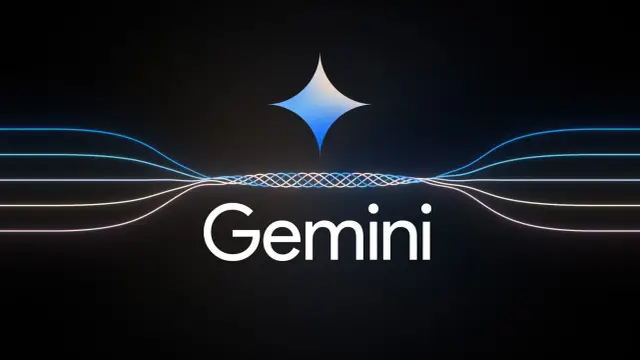Google's New Artificial Intelligence Model, Gemini, Touts 5% Stock Leap and Competitive Edge
Google's stock surged by 5% following the announcement of its latest AI model, Gemini.

Taking a giant stride in AI innovation, Google's revelation of its newest artificial intelligence model, aptly named Gemini, led to a significant 5% surge in the company’s stock price - marking its most stellar performance since August. The announcement has simultaneously sparked an optimistic rally in its share price and silenced the talks questioning Google's advancement in AI.
The news certainly created a positive impact as far as Wall Street is concerned. However, questions arise around the monetization strategy for Gemini. In brief, it is evident Google's AI capabilities are still an influential factor in the tech industry.
This innovation comes as a breath of fresh air, especially considering Google has been under scrutiny concerning its AI abilities. Alphabet’s subsidiaries, notably Google, have had to bear this pressure throughout the year, hence a robust, competitive model, such as Gemini, could serve as a game-changer both in its consumer search activity and the cloud enterprise sales realm.
Analysts at Bank of America have expressed that Google’s demonstrated AI strengths and data suggesting its proprietary AI model being best in class holds great promise for its future share performance in 1H’24. Sometimes actions speak louder than words, and in this case, Gemini might be the force to silence critics.
It remains to be seen how Google plans to generate revenue from Gemini and if this strategy will encompass all its products. However, the company did reveal plans about licensing Gemini to clients via Google Cloud later this month suggesting an initial approach to capitalize on its latest AI model.
Although the corporate tech giant claims that Gemini outperforms OpenAI’s GPT-3.5 chatbot, there are no comparative metrics available against OpenAI’s most recent model, GPT-4 Turbo. The introduction of Gemini has nonetheless illuminated the potential for AI to become an emerging revenue source.
Microsoft's strategy to infuse AI into Word, Excel, and other programs, resulting in a new product - Copilot, powered by OpenAI’s ChatGPT, offers an example. Priced at $30 per person per month, Piper Sandler analysts predict that by 2026, Copilot could earn an annual revenue exceeding $10 billion for Microsoft.
With Wall Street largely unresponsive to last Wednesday’s announcement, JPMorgan analysts have shown optimism seeing Google's advancements in this pivotal tech shift. Their one caveat is the potential backlash over the uncertain monetization trajectory in their Search sector.
Analysts view Gemini as the capstone of a series of AI announcements from Google this year. Still, they predict that it will take time before AI significantly influences Google’s growth and profitability. Google is just beginning to incorporate Gemini into core products like Search. Hence, it urges stakeholders to be patient in expecting immediate impact and changes to estimates.
While Google envisions 2024 more around results than headlines, the industry experts agree that there is a long road ahead in altering behaviors across advertisers, consumers, developers, and enterprises. Challenges aside, the introduction of Gemini is an exciting chapter for Google as it continues to push boundaries in the realm of AI.
For those interested in the world of AI and app development, the step-by-step guide to building an app without coding offers a great starting point. You can also explore the capabilities of AI in no-code platform and scalability on the AppMaster blog, a leading platform for no-code app development.





